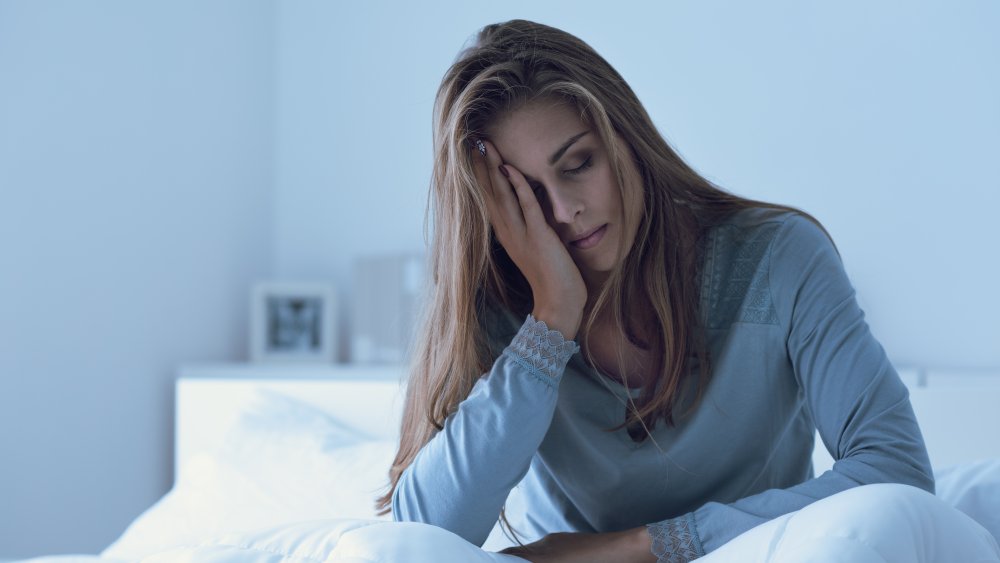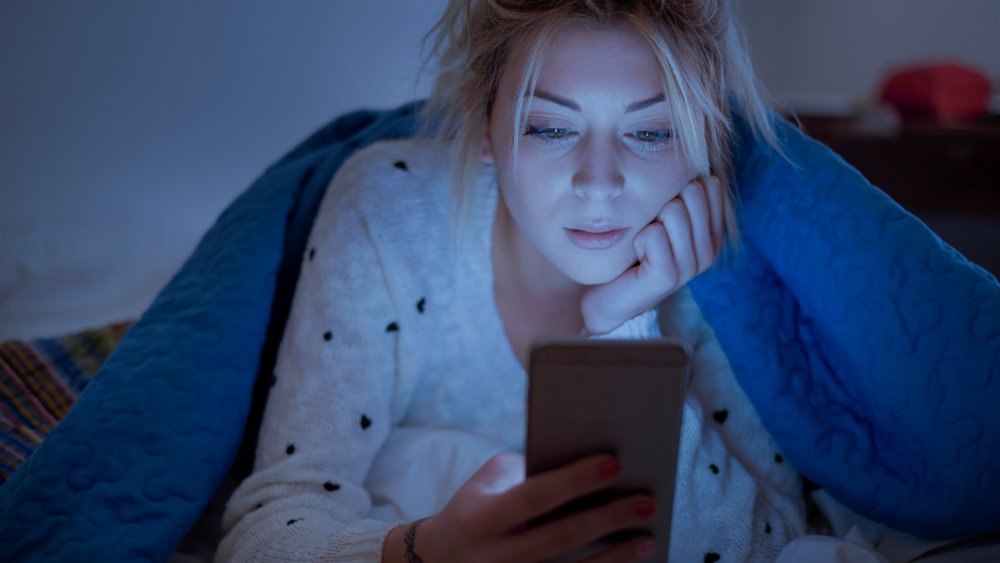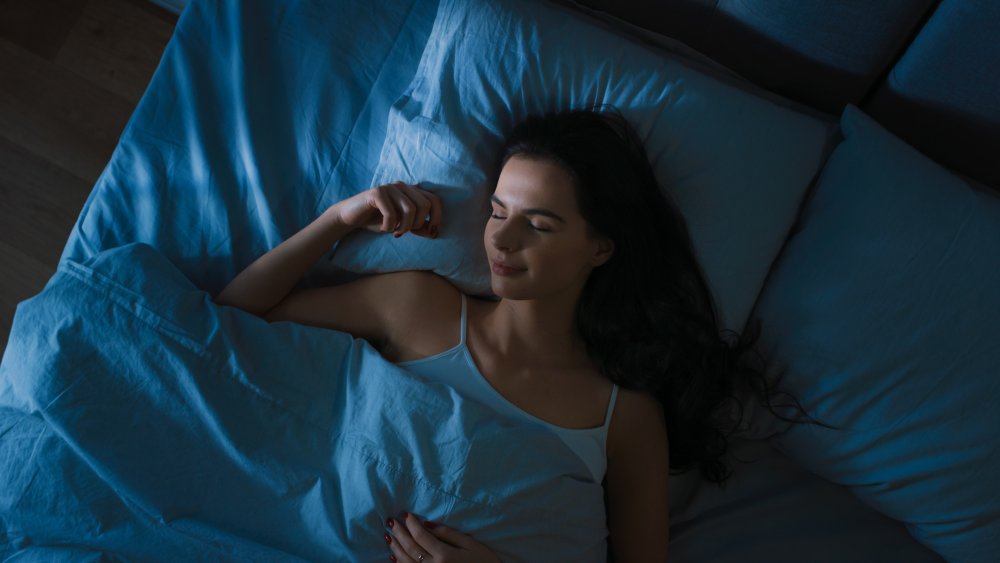What Really Causes Insomnia?
Many of us look forward to curling up in our bed under warm covers and blissfully falling asleep. Unfortunately, a large number of us will struggle to get there. Whether you have trouble calming the thoughts in your head or toss and turn throughout the night, you're not alone. According to Science Daily, "About 25 percent of Americans experience acute insomnia each year." Sadly, a lack of sleep can have devastating effects. Gayle Greene, author of Insomniac, told NPR, "Sleep is the fuel of life. It's nourishing; it's restorative. And when you are deprived of it, you are really deprived of a basic kind of sustenance." So what actually is insomnia and what causes it?
Dr. Karl Doghramji told MD Magazine that insomnia involves poor sleep quality or quantity. He explained patients will "complain that they do not fall asleep quickly enough, that they wake up a lot of times during the course of the night, that they have a diminished sleep amount, or that they wake up feeling unrefreshed during the course of the day."
These are the possible causes of insomnia
Some of the major causes of insomnia are anxiety, stress, and depression, which is unfortunate because a lack of sleep can make these symptoms worse. According to HelpGuide, a nonprofit mental health and wellness website, "other common emotional and psychological causes include anger, worry, grief, bipolar disorder, and trauma." The nonprofit says treating these underlying issues is crucial in resolving insomnia.
HelpGuide also explains that medical problems or illness can cause lack of sleep. Medical conditions and diseases like asthma, allergies, acid reflux, Parkinson's disease and cancer can all cause sleepless nights. Those that suffer from chronic pain can also struggle with insomnia. Medications and prescription drugs can also interfere with sleep. These include stimulants for ADHD, antidepressants, thyroid hormone, and some contraceptives.
However, sometimes the culprit could just be your daily habits. For instance, if you drink large amounts of coffee during the day, eat sugary foods or have heavy meals before bedtime, this can lead to an inability to fall asleep. Likewise, not working out enough or working out right before trying to sleep can also cause problems. And drinking alcohol to try to cure your insomnia could also be making the problem worse.
Home remedies to help you sleep
In order to sleep better, Medical News Today recommends using relaxation techniques like meditation and muscle relaxation. It is also recommended to try to avoid watching television or reading your phone in bed. Electronic screens produce a blue light that can interfere with your body's production of melatonin. Sticking to a regular sleep schedule and getting up at the same time every day, even on the weekend, is also important. This can help get you back in a regular sleep rhythm. Lastly, try to ensure your bedroom is quiet, dark, and cool. Hopefully these techniques will help lead you get that much needed shut-eye that we're all in need of.


